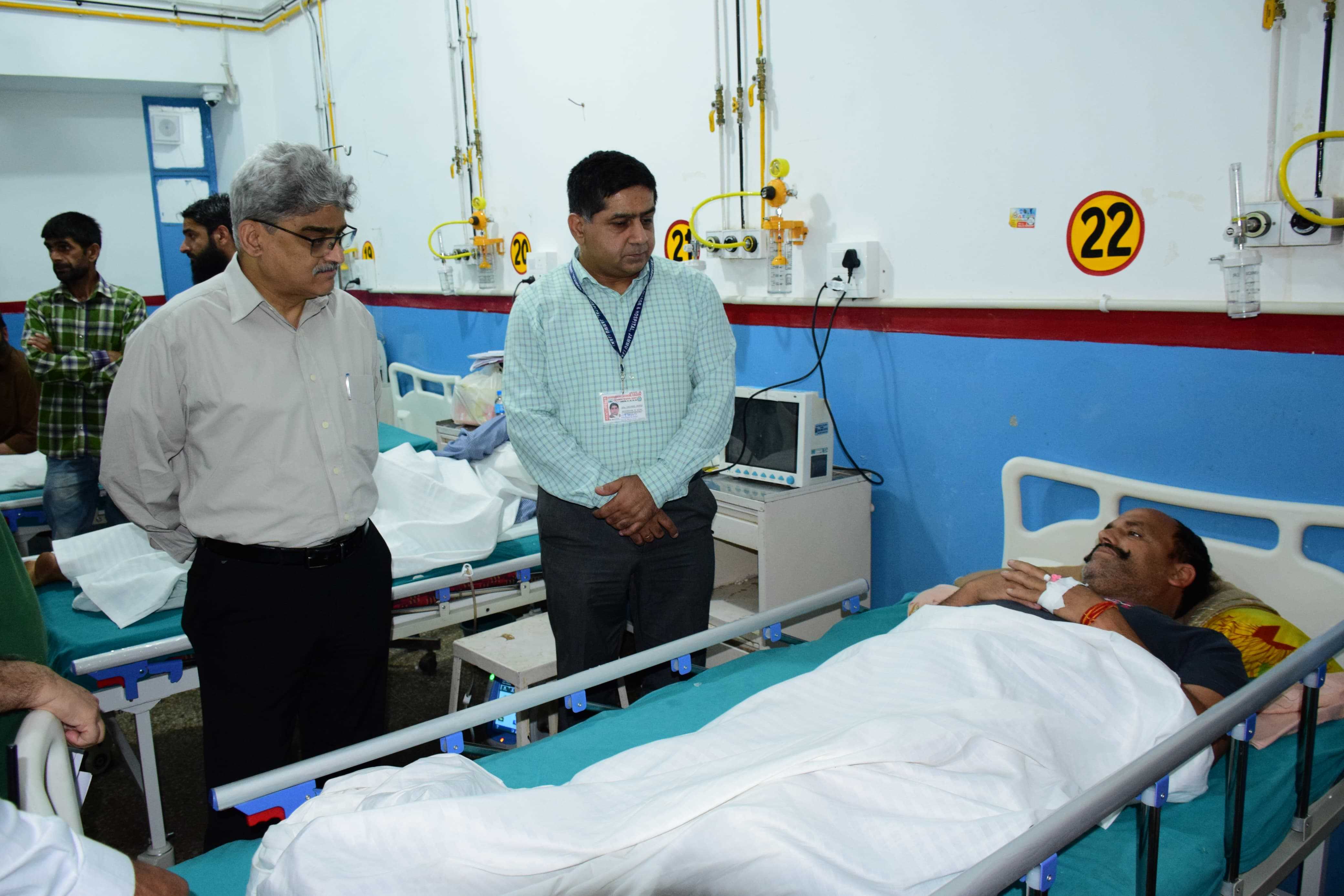
Decades of dilemma and disdain for the poor people of rural areas in India ended after the model of governance at grassroots level was adopted through the Panchayat Raj act in the country which saw sea change in the participation of masses in administrative issues concerning them. In this regard, only Jammu and Kashmir was denied this form of grassroots governance as the political dispensation prior to August 5, 2009 wanted to derive benefits of the Centrally sponsored schemes for their own workers so as to manipulate voters through nepotism. The scenario changed post-Article 370 abrogation as elected representatives from village to town to district level were given powers to manage their affairs administratively. The Panchayati Raj Institutions or PRIs are the foundation of Rural construction and development programmes. In governance, from policy to service delivery, PRIs act as the living cell of the system. By strengthening the PRIs, Centre is empowering a more effective system to truly realize the vision of Gram Swaraj. It was Prime Minister Narendra Modi who felt the pain of subjugated masses and witnessed the governance deficit as a boy in rural Gujarat strengthened the three-tier Panchayati Raj system in the entire country as PM. In Jammu and Kashmir rural population too is reaping the benefits under his guidance as administration has been strengthening the roots of PRIs to build an inclusive society. There has to be an effort to remove the gap between rural and urban population so that prosperity reaches every citizen of J&K. The initiative to bring the PRIs on a common platform is witnessing unprecedented participation of PRI representatives which reflects the untiring efforts of the government to make Panchayati Raj Institutions more empowered, participatory and vibrant. The effective devolution of three Fs- funds, functions and functionaries has established the centrality of Panchayats in governance and implementation of public welfare schemes. It will bring effective social and economic empowerment, besides ensuring that the benefits of rapid economic growth actually reach the last person in the queue. A historical decision was taken to involve PRIs to formulate District Capex Budget to effectively plan and carry out development works. Funds are also being provided to the PRIs to evolve their development schemes as per the needs of the local population and special efforts are being made to ensure smooth functioning of offices of PRIs. A vibrant and productive agrarian economy is the foundation of high and sustained economic growth. As a watchdog of developmental activities, PRIs can help in making the governance more transparent and accountable to the citizens.

Decades of dilemma and disdain for the poor people of rural areas in India ended after the model of governance at grassroots level was adopted through the Panchayat Raj act in the country which saw sea change in the participation of masses in administrative issues concerning them. In this regard, only Jammu and Kashmir was denied this form of grassroots governance as the political dispensation prior to August 5, 2009 wanted to derive benefits of the Centrally sponsored schemes for their own workers so as to manipulate voters through nepotism. The scenario changed post-Article 370 abrogation as elected representatives from village to town to district level were given powers to manage their affairs administratively. The Panchayati Raj Institutions or PRIs are the foundation of Rural construction and development programmes. In governance, from policy to service delivery, PRIs act as the living cell of the system. By strengthening the PRIs, Centre is empowering a more effective system to truly realize the vision of Gram Swaraj. It was Prime Minister Narendra Modi who felt the pain of subjugated masses and witnessed the governance deficit as a boy in rural Gujarat strengthened the three-tier Panchayati Raj system in the entire country as PM. In Jammu and Kashmir rural population too is reaping the benefits under his guidance as administration has been strengthening the roots of PRIs to build an inclusive society. There has to be an effort to remove the gap between rural and urban population so that prosperity reaches every citizen of J&K. The initiative to bring the PRIs on a common platform is witnessing unprecedented participation of PRI representatives which reflects the untiring efforts of the government to make Panchayati Raj Institutions more empowered, participatory and vibrant. The effective devolution of three Fs- funds, functions and functionaries has established the centrality of Panchayats in governance and implementation of public welfare schemes. It will bring effective social and economic empowerment, besides ensuring that the benefits of rapid economic growth actually reach the last person in the queue. A historical decision was taken to involve PRIs to formulate District Capex Budget to effectively plan and carry out development works. Funds are also being provided to the PRIs to evolve their development schemes as per the needs of the local population and special efforts are being made to ensure smooth functioning of offices of PRIs. A vibrant and productive agrarian economy is the foundation of high and sustained economic growth. As a watchdog of developmental activities, PRIs can help in making the governance more transparent and accountable to the citizens.
© Copyright 2023 brighterkashmir.com All Rights Reserved. Quantum Technologies